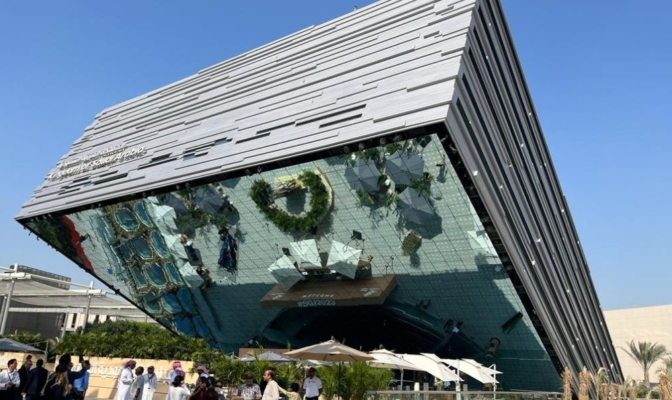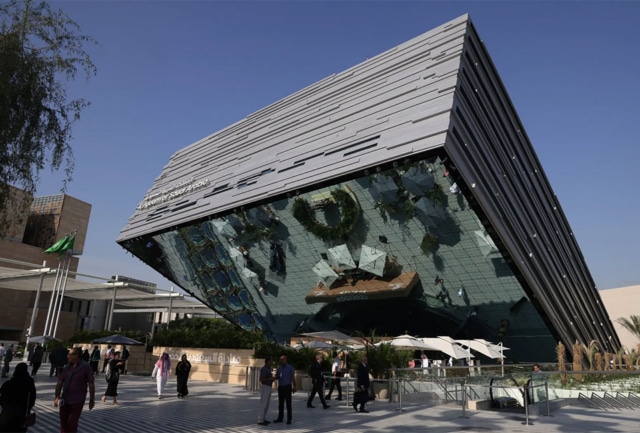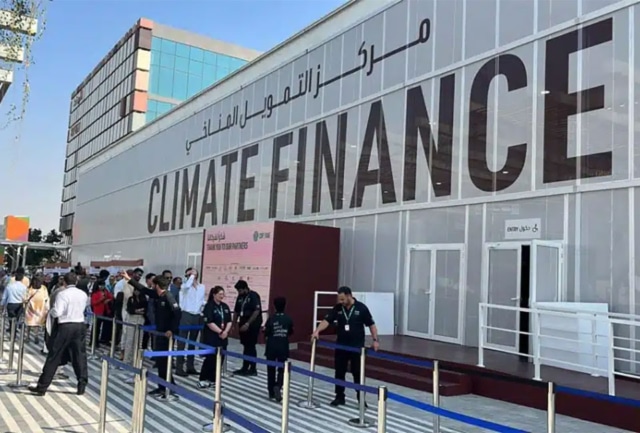COP28: collaboration is key
Share on LinkedIn
The feeling at COP28 is buoyant as delegates from across the world walk around the huge Expo site in Dubai that is more like Disneyland in scale than compared to previous meetings.
It is the only global event where investors, private capital, tech firms, legacy businesses, governments and NGOs meet and discuss how to overcome the huge challenges of moving to a decarbonised economy.
Despite the controversy over fossil fuels, it is clear the UAE leadership has been building momentum during the last year to make this a success. The country’s banking alliance has already announced the mobilisation of $270billion in sustainable finance by 2030.
This has also been evident by the amount of collaboration we have seen.
Earlier this week, the UK announced the first ever climate-resilient debt clauses in Africa, with Senegal. France and Japan announced they will lead in supporting the African Development Bank’s breakthrough facility to leverage Special Drawing Rights (SDRs) for climate and development, channelling additional resources where they are needed most. SDRs are rainy-day foreign exchange reserves held at the International Monetary Fund, backed by dollars, euros, yen, sterling and yuan.
And it’s not just governments making big announcements. A consortium led by the Rockefeller Foundation launched a pilot initiative to use carbon credits to retire a coal power plant in the Philippines before the end of its natural life.
The Institutional Investors Group on Climate Change (IIGCC) was among a number of organisations involved in a ‘Call for Collaboration’ encouraging governments to accelerate efforts around mobilising private finance for adaptation and resilience.
The partners behind the Call, including the IIGCC, UN Environment Programme Finance Initiative (UNEP FI), the University of Oxford Environmental Change Institute, the University of Cambridge Institute for Sustainability Leadership, and the Asia Investor Group on Climate Change, committed to sharing knowledge, data and best practices as well as pilot frameworks and taxonomies.
These innovative solutions have also involved the banking sector. Chatting to one senior banker, he told me how the main issue was de-risking opportunities that are long-term and untested. The example he gave is having to bring people together on an EV battery start-up. The finance was sorted by convening two of Europe’s largest car manufacturers, discussing the proposal and securing order books for 10 years in advance, allowing them time and crucial funds to scale up.
And there has been no better example of collaboration than “Blended Finance”, the bringing together of public and private capital to ensure projects are de-risked and get off the ground. On Finance Day this week, Nordic countries and the US launched a new blended finance collaboration aimed at mobilising billions of dollars for developing countries and emerging markets. It will direct private capital for investments into climate mitigation and adaptation, biodiversity and nature-based solutions before the end of 2025.
And the key to all this collaboration: communication. It is vital that organisations have an open and collegiate relationship with all their stakeholders so they can form new partnerships and build new ventures. The number of roundtables and panel events have been overwhelming at COP28, but the real impact will be landed before and after these formal gatherings between institutional investors, financiers, government officials, tech companies and NGOs as they meet and try to find new solutions together.
Ryan Kisiel, Partner
H/Advisors Maitland
[email protected]
Saudi Arabia’s exhibition center at the United Nations climate summit in Dubai last week.
The Climate Finance building at COP28.




